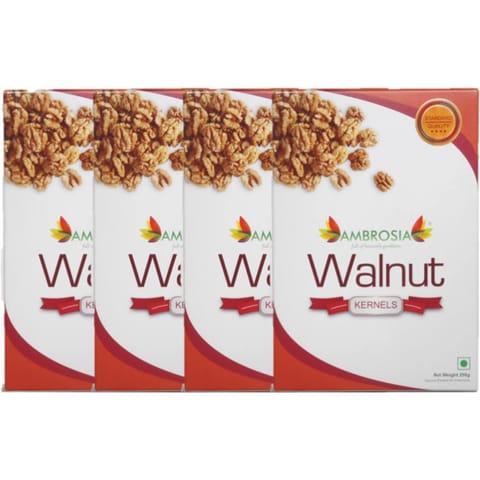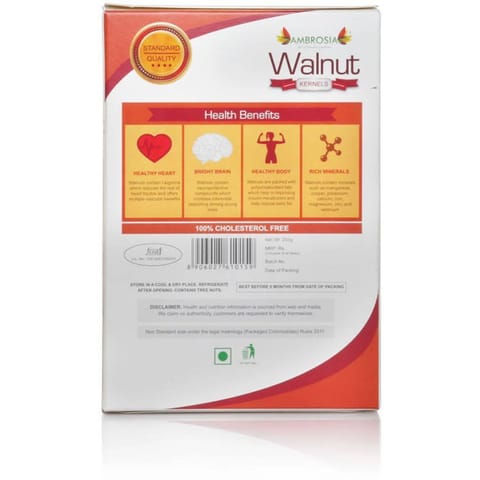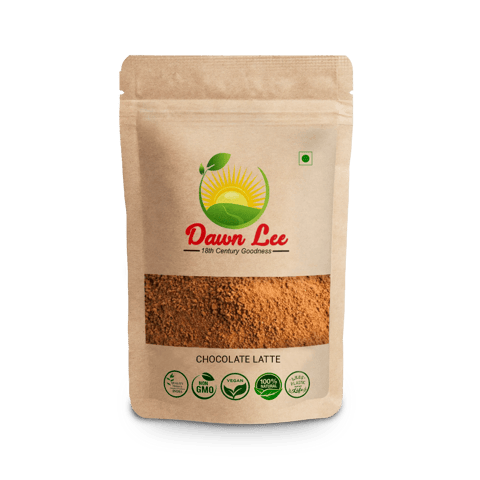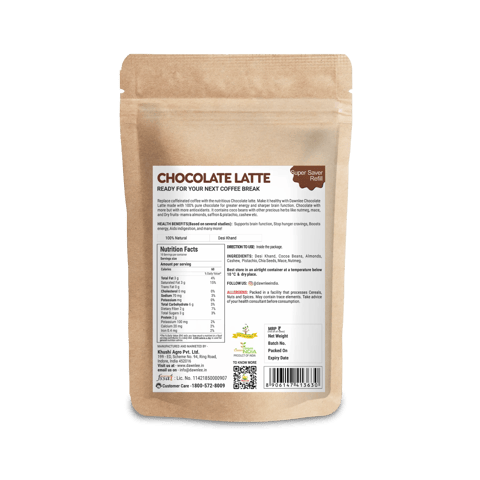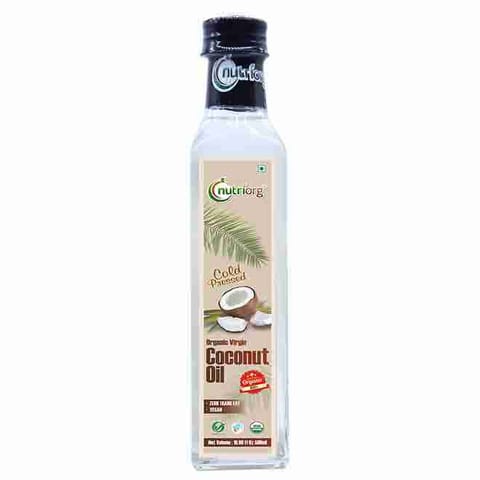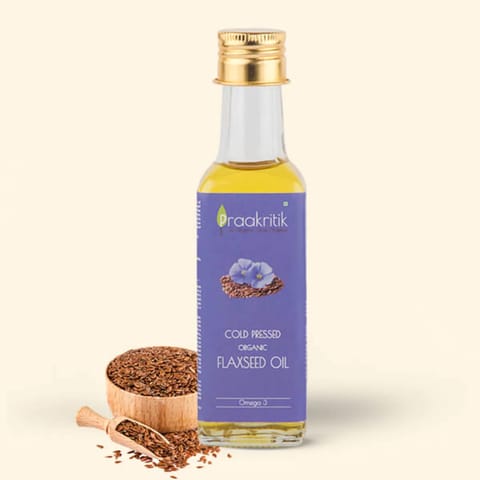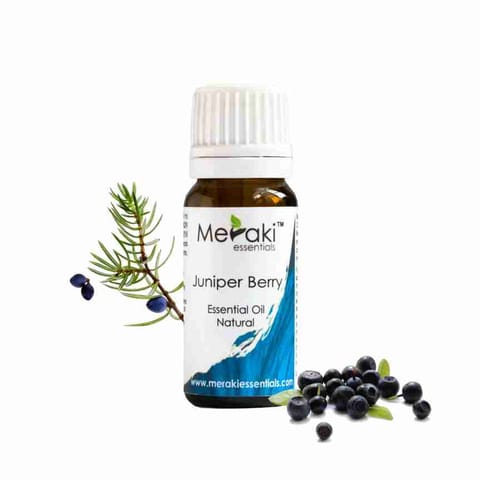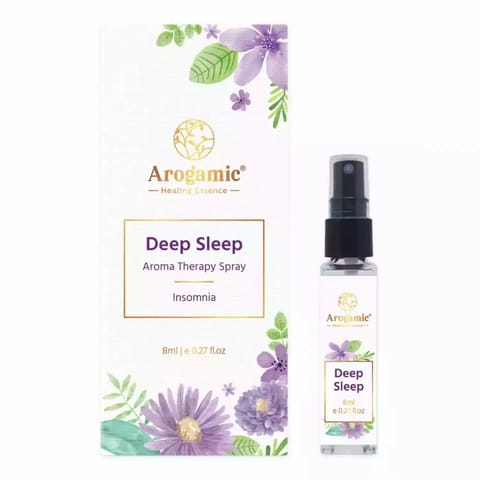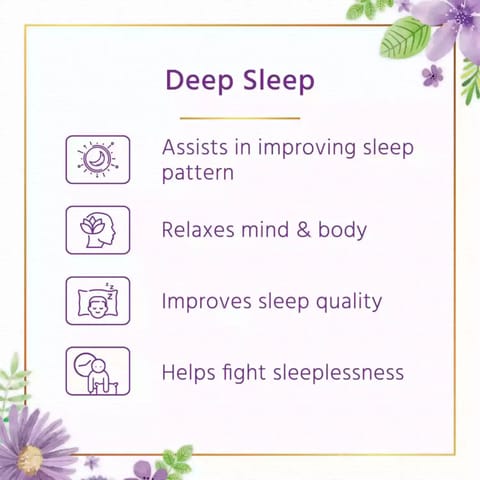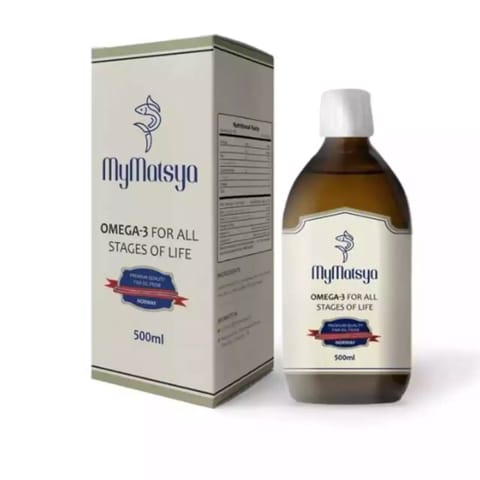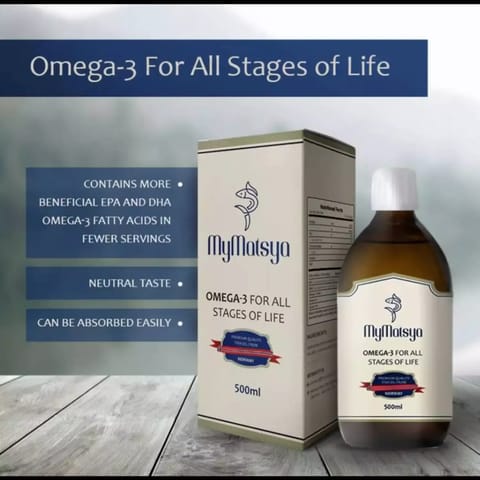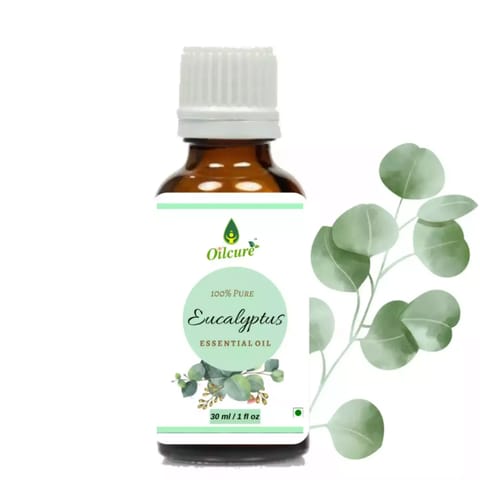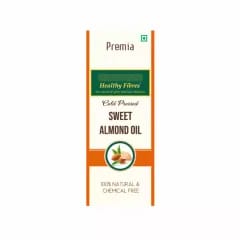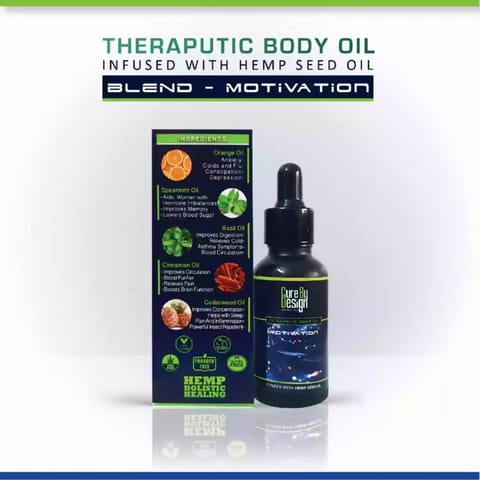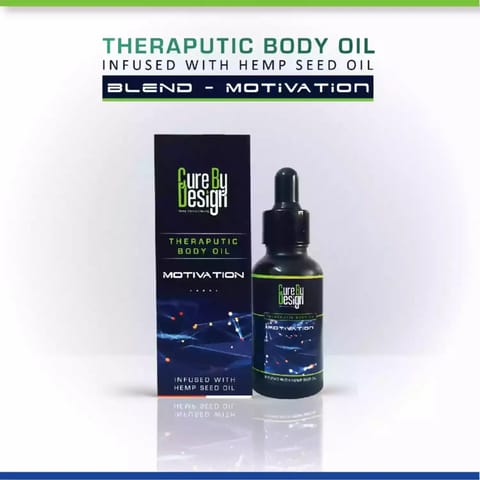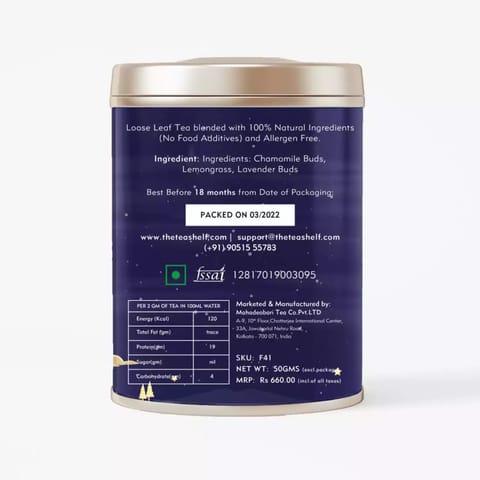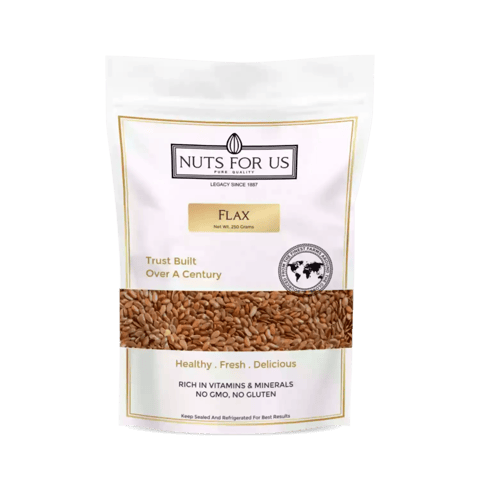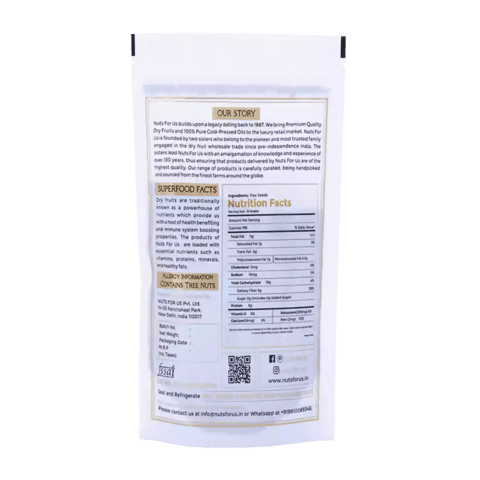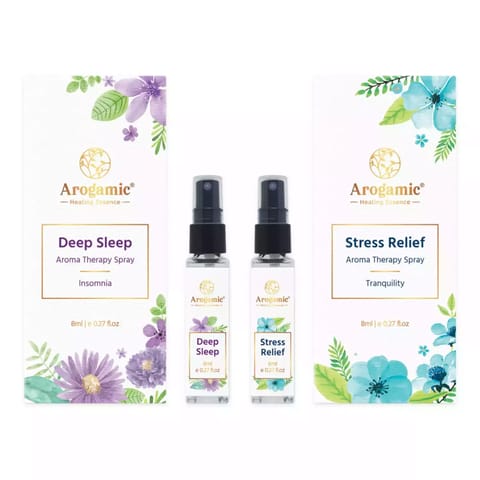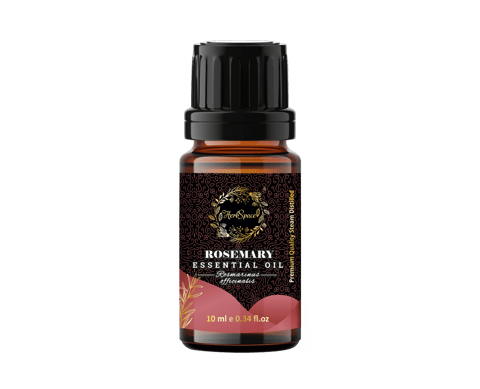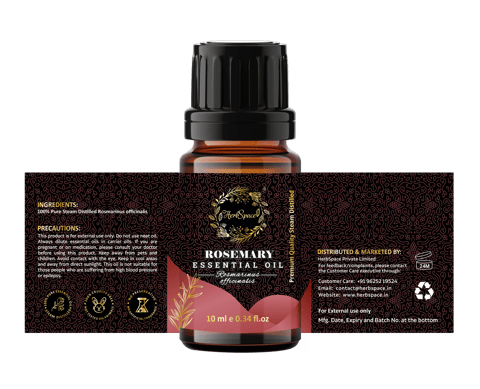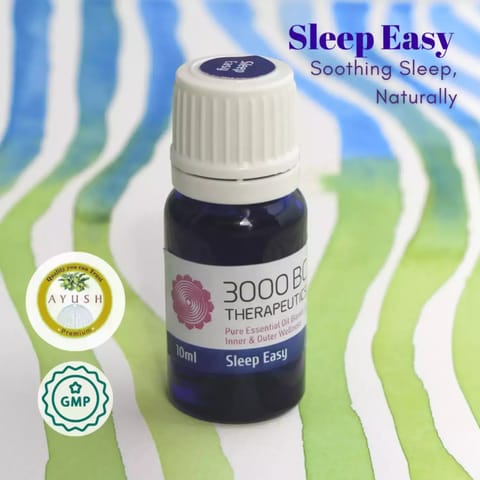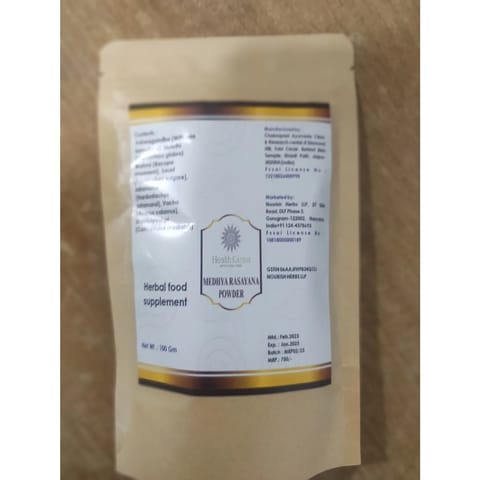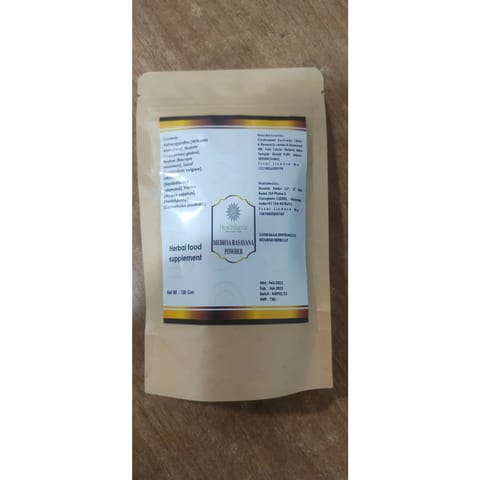Choose your location
Select a delivery location to see product availability and delivery options
Brain Health
Brain Health and Aging: Understanding the Role of Nutrients
As we journey through life, our brain, much like other ...
Brain Health and Aging: Understanding the Role of Nutrients
As we journey through life, our brain, much like other organs, experiences the gradual effects of time. This can lead to challenges such as cognitive decline, memory loss, and even conditions like dementia, Alzheimer’s, and Parkinson’s. While we can't halt the natural aging process, there are lifestyle shifts within our control that hold the potential to mitigate these concerns.
We might not have the ability to reverse conditions like Alzheimer's or Parkinson's, but we do possess the means to decelerate the progression of neurodegeneration by fortifying both our gray and white matter," we find in an insightful post.
In the light of this perspective, the quality and resilience of our gray and white matter play a vital role in brain health. Gray matter houses a majority of our neural cells and is responsible for processing information, emotions, sensory perception, and memory. White matter, on the other hand, facilitates communication to and from gray matter.
Luke Coutinho always emphasizes that beyond the natural aging process, dopamine exhaustion can contribute to the deterioration of gray and white matter. This can arise from behaviors like seeking instant gratification, indulging in binge-watching, mindless scrolling, and an excess of television. Furthermore, elements such as sleep deprivation, prolonged stress, unresolved anger, micronutrient deficiencies, consumption of junk and ultra-processed foods, and autoimmune conditions like multiple sclerosis can also contribute to the breakdown of these essential brain components.
Here, we will discuss the role of various nutrients such as omega-3 fatty acids, virgin coconut oil, nuts and seeds, therapeutic fasting, essential oils, and meditation in maintaining optimal brain function and how these lifestyle changes benefit brain health.
Brain Health and Omega-3 Fatty Acids
Did you know?
Omega-3 fatty acids are essential polyunsaturated fats that the body cannot produce on its own.
These fatty acids play a crucial role in maintaining cognitive function and brain health. Studies have shown that individuals who incorporate omega-3 fatty acids into their diet may experience improved memory, focus, and cognitive performance.
Omega-3 fatty acids can be found in various food sources, including oily fish such as salmon, mackerel, and sardines. However, if you don't eat fish, there are also plant-based sources of omega-3 fatty acids, such as chia seeds, walnuts, and flaxseeds.
Brain Health Benefits: Omega-3 fatty acids are known for their anti-inflammatory properties, which can be beneficial for maintaining brain health. Inflammation in the brain has been linked to various neurological conditions, including Alzheimer's disease and dementia. By incorporating omega-3 fatty acids into your diet at the right age, you can help reduce inflammation and protect your brain from age-related decline.
Virgin Coconut Oil for Brain Health
Virgin coconut oil is gaining popularity as a superfood due to its numerous health benefits. In addition to its lauric acid content, which has antimicrobial properties, virgin coconut oil is rich in medium-chain triglycerides (MCTs). These MCTs are easily absorbed by the body and converted into energy, providing a quick source of energy for the brain.
MCTs are known to boost cognitive function and improve memory recall in individuals with Alzheimer's disease. Additionally, virgin coconut oil contains antioxidants that can protect the brain against free radical damage and help prevent cognitive decline.
Virgin coconut oil can be easily incorporated into your diet by incorporating it into smoothies, using it as a cooking oil, or adding it to baked goods. Look for pure virgin coconut oil on You Care Lifestyle.
Brain Health: Nuts & Oilseeds
Nuts and seeds are powerhouses of nutrients, including healthy fats, proteins, vitamins, and minerals. These nutrient-dense foods are excellent sources of omega-3 fatty acids, which are essential for brain health.
Certain nuts and seeds, such as walnuts, chia seeds, and hazelnuts, are particularly high in omega-3 fatty acids. Walnuts, for example, are an excellent source of alpha-linolenic acid (ALA), a type of omega-3 fatty acid. ALA is converted into DHA and EPA, two other omega-3 fatty acids that are vital for brain health.
Nuts and seeds are also rich in antioxidants, which protect the brain against oxidative stress and promote cognitive function. Furthermore, nuts and seeds are a good source of vitamin E, a fat-soluble vitamin that is essential for maintaining healthy cell membranes and protecting the brain from oxidative stress.
Circadian Rhythm and Brain Health
Circadian rhythms, approximately 24-hour patterns regulated by the brain's molecular clockworks, align with natural day-night cycles. These rhythms influence our body via messaging from the master clock in the hypothalamus, impacting sleep, cortisol levels, and more. The link between mood disorders and circadian disruptions is notable: mood issues often disrupt circadian responses like sleep and cortisol, while disruptions like jet lag or night-shift work can worsen mood symptoms. Although the connection between circadian rhythms and mental health is robust, recent studies are uncovering direct links between the circadian system and mood regulation.
Read more to understand about Circadian Rhythm
Essential Oils and Meditation for Brain Health
Essential oils are concentrated extracts derived from plants. These oils have powerful medicinal properties and have been used for centuries for therapeutic purposes. Certain essential oils have a calming effect which can help reduce the stress levels. Find out essential oils on You Care Lifestyle.
Essential oils can help reduce stress and promote relaxation, both of which are crucial for brain health. Stress can have a detrimental effect on cognitive function, contributing to anxiety and impaired memory. Essential oils such as lavender, chamomile, and frankincense can help to calm the mind and promote relaxation.
Meditation is another practice that can positively impact brain health. Meditation involves sitting quietly and focusing on the present moment, allowing your mind to be still. This practice has been shown to improve cognitive function, reduce stress, and increase feelings of well-being.
Active Ingredients and Brain Health
Brahmi:
Known as a revered Ayurvedic herb, Brahmi holds a special place in enhancing brain health. It's believed to support memory, cognitive function, and mental clarity. By aiding in the production of certain neurotransmitters, Brahmi can contribute to improved concentration and a calmer mind, making it a valuable asset for overall brain well-being.
Ashwagandha:
Ashwagandha, another prominent herb in Ayurveda, is cherished for its adaptogenic properties. These properties may help the brain manage stress more effectively, reducing the negative impact of chronic stress on cognitive functions. By promoting a balanced stress response, Ashwagandha supports mental resilience and cognitive performance, making it a vital element in maintaining brain health.
Ginkgo Biloba:
Ginkgo Biloba, derived from the Ginkgo tree, has been linked to improved blood circulation, including blood flow to the brain. This enhanced circulation can aid in delivering oxygen and nutrients to brain cells, potentially supporting memory, focus, and overall cognitive function.
Turmeric:
Renowned for its active compound curcumin, turmeric possesses anti-inflammatory and antioxidant properties that extend to brain health. Curcumin's potential in reducing oxidative stress and inflammation may contribute to protecting brain cells and promoting cognitive longevity.
Lion's Mane Mushroom:
This unique mushroom has gained attention for its potential to stimulate nerve growth factor (NGF) production. NGF is vital for the growth, maintenance, and repair of brain cells, potentially leading to enhanced cognitive function and better overall brain health.
Remember, while these ingredients show promise in promoting brain health, it's important to consult with a healthcare professional before incorporating new supplements into your routine, especially if you have pre-existing health conditions or are taking medications.
In conclusion, brain health and aging are intricately linked. By making lifestyle changes, you can support brain health and maintain your cognitive function as you age. These strategies can help reduce inflammation, provide energy, reduce stress, and protect your brain from age-related decline.
References:
Gómez-Pinilla F. Brain foods: the effects of nutrients on brain function. Nat Rev Neurosci. 2008;9(7):568-578. doi:10.1038/nrn2421.
Van Drunen R, Eckel-Mahan K. Circadian rhythms as modulators of brain health during development and throughout aging. Front Neural Circuits. 2023;16:1059229. Published 2023 Jan 19. doi:10.3389/fncir.2022.1059229
Always remember that products can’t work alone, magic is not in formulas but in YOU. With balanced diet, good sleep, emotional detox, changing lifestyle will bring power and efficacy to the product.
DISCLAIMER : No products are a replacement for any medication or medical treatment. Please make an informed decision and keep your health profession in loop before introducing any new product especially if you have medical conditions.







